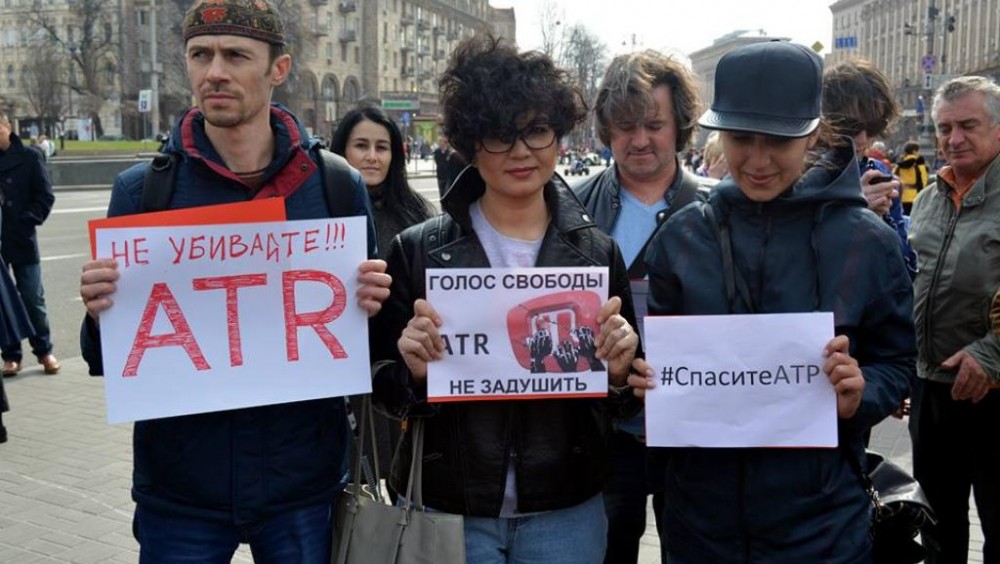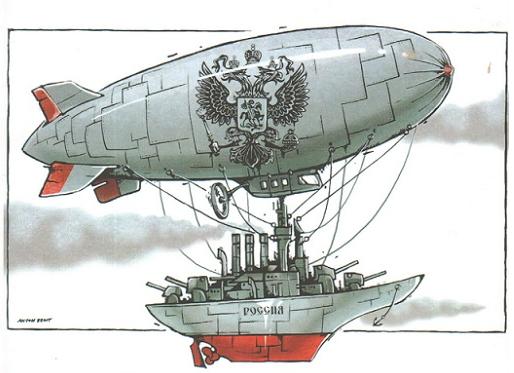Ardzhil Terner, a face name for a Russian blogger said living in Canada, argues what Vladimir Putin is trying to do in Ukraine is to prompt the West to intervene there by using irregular forces to destabilize the situation, something that would cost the West any chance of winning and guarantee that Russia would come out on top.
Such a strategy, he says, has been part of Russian foreign and domestic policies for centuries. In Terner’s telling, it involves tempting outside powers to intervene in what they believe is a position in which Russia is weak and then exploiting that intervention to generate support for the Russian leadership by allowing it to pose as the defender of the country.
“However paradoxical it may sound,” he continues, “every time when the West falls for such provocations, it has suffered crushing defeat,” and the same thing is in prospect in the case of southeastern Ukraine where a Western intervention would produce exactly the opposite effect that many think: a smashing victory for Moscow.
Unlike the West which has “always preferred the path of honest and open military aggression,” he writes, “Russia in a fashion which is rooted in its role as an heir of Byzantiu, hs preferred to use what are in truth barbaric means of conducting war, never attacking first but rather forcing the opponent to do so and presenting itself as an innocent victim of aggression.”
According to Terner, that was the case in the Russian-Polish war of 1610-1612, which Poland first appeared to win and then completely lost, in the Swedish war of the early 18th century, of the campaign against Napoleon in the early 19th, and the Russo-Japanese war in the early 20th in which Japan’s acquisition of debt put it at risk of later defeat.
Terner argues that “the two Russian revolutions [of 1917] and the civil war which followed them again showed the high effectiveness of the methods of Russian ‘hybrid war,” in which the Russians first destroyed the empire thus tempting outside intervention and then used that intervention to rebuild the empire under a new name.
Moscow used similar tactics against Hitler, first positioning itself to appear weak and thus tempting German intervention and then turning on the Germans and winning an overwhelming victory, Terner says.
And in 1991, the Russians “destroyed the Soviet Union,” prompting the US and NATO, neither of which was led by people who knew history, to celebrate and move eastward. “At the same time, Russia artfully attracted them into various conflicts in the Middle East and Yugoslavia and besides this prompted the expansion of NATO” eastward.
That looked like an overwhelming Russian defeat, but Terner says, “it should have been perfectly clear to any idiot that this was the latest shameful provocation of the Russians who in this way sought to force the United States and NATO to repeat the errors of their predecessors” and get involved near or in Russia in ways that would secure their defeat.
Ukraine is the latest act of this drama, Terner says. The Russians “provoked the West to organize the Maidan, to overthrow President Yanukovych, and then give the order to Kyiv to begin military operations in the Donbas.” If the West now intervenes as the blogger seems to think likely, then things will play out to a Russian victory after an apparent defeat.
There are obvious problems with this analysis. On the one hand, Terner’s definition of “hybrid warfare” is hardly the same one that many others are using. And on the other, his argument implies a degree of Russian calculation far greater than was in fact the case. In sum, he makes an intentional virtue what was a forced response.
But his commentary is important for the following reason. It may not be accurate either of the past or in the future, but it provides a narrative many Russians will find both convincing and evidence of their own cleverness and sophistication compared to their opponents in the West.
And that in turn will give them more reasons to support Putin’s increasing use of provocations against the West, provocations that many Russians will see not as a dangerous threat to their own wellbeing but as necessary steps to the ultimate defeat of the West and their own ultimate victory.





